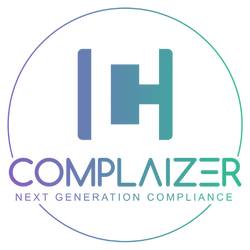In the rapidly evolving world of technology and regulation, Artificial Intelligence (AI) is becoming increasingly significant, particularly in the realm of compliance. This topic was the focal point of the recent Executive Circle event, „AI-driven Compliance Solutions,“ held at the KI Park in Berlin.
High-profile Participants
This event brought together leading figures to discuss the future of compliance:
- Georg Eisenreich, Bavarian Minister of Justice
- Claudia Plattner, President of the BSI
- Siegfried Russwurm, President of the BDI
- Fritz Esterer, CEO of the WTS Group
Along with approximately 100 other executives from business, academia, and politics, they engaged in an intensive discussion on the transformative role of AI in compliance.
Technological Level Playing Field
A key focus of the discussion was the need for a concept of „technological level playing field“ in AI-driven compliance solutions. This means that both companies and government agencies should utilize the same advanced tools to not only act more efficiently but also more fairly. The deployment of AI enables new standards of fairness and transparency.
Potential of Artificial Intelligence
The integration of AI into compliance processes marks a significant advancement in the legal and tax world. By quickly and accurately analyzing complex regulations, AI allows companies to meet their compliance requirements efficiently and securely. Moreover, AI offers the potential for proactive risk assessment and the early implementation of countermeasures.
In-depth Study on AI-driven Compliance Solutions
For those interested in delving deeper into this topic, Prof. Dr. Sabina Jeschke, Dr. Thomas Thiele, and a team of experts have authored a comprehensive study. This study explores various facets of AI-driven compliance solutions and provides valuable insights and actionable recommendations. The download link for the study is available here.
Conclusion
The discussions and outcomes of the Executive Circle underscore that AI-driven compliance solutions are not just a vision of the future but an inevitable development. Companies and government agencies must leverage the capabilities of AI to make their compliance processes more effective and fairer.
Engagement in this area remains critical, and collaboration among various stakeholders will be key to fully realizing the benefits of AI. By strategically deploying AI, efficiencies can be increased while also enhancing ethical standards such as fairness and transparency.




